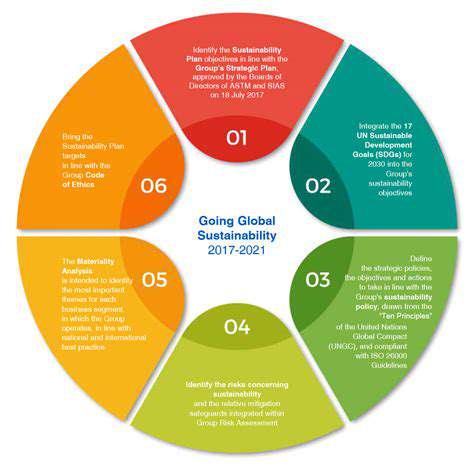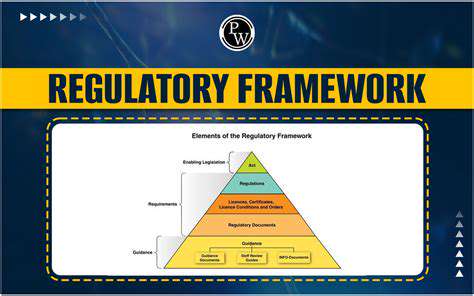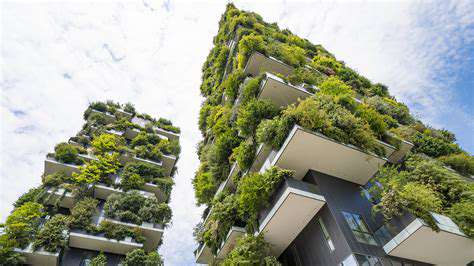Smart Lighting Systems: Beyond Basic Illumination
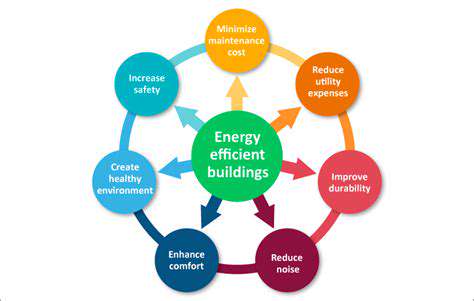
Creating Ambiance and Enhancing Mood
Setting the Stage with Color Temperature
The strategic use of color temperature fundamentally transforms how we experience interior spaces. Warm tones around 2700K radiate comfort and relaxation, making them perfect for creating intimate spaces like bedrooms. Conversely, cooler 4000K-5000K lighting delivers crisp, alertness-boosting illumination that enhances productivity in workspaces. Modern lighting solutions now enable effortless transitions between these temperatures, adapting to our circadian rhythms throughout the day.
Dynamic Lighting for Life's Moments
Today's intelligent lighting transcends basic functionality. Custom lighting scenes can transform a room's character instantly - from a cinema-worthy dim glow for movie nights to bright task lighting when work demands concentration. With mobile apps putting complete control in your hand, switching between these presets becomes as easy as tapping your phone, eliminating the need for complex adjustments.
Automation for Natural Living
Smart scheduling capabilities revolutionize how we interact with home lighting. Programs that simulate natural sunrise/sunset patterns don't just save energy - they promote healthier sleep cycles. Advanced systems can even sync with digital calendars, automatically adjusting illumination for scheduled activities without requiring any manual input.
The Connected Home Ecosystem
When lighting integrates with other smart home devices, the possibilities multiply exponentially. Imagine entering a room where lights, temperature, and even window shades adjust automatically to your preferences. This seamless interaction between systems creates living spaces that intuitively respond to environmental conditions and personal habits.
Expressive Lighting Possibilities
Beyond practical illumination, smart systems unlock creative potential. Homeowners can design pulsating color sequences that dance to music or subtle gradients that shift throughout the evening. These artistic applications add sophisticated visual dynamics that traditional lighting could never achieve.
Smarter Energy Management
The environmental benefits of intelligent lighting are substantial. Automated sensors ensure lights operate only when needed, while daylight-responsive dimming optimizes energy use. Over time, these efficiencies translate to noticeable reductions in both energy bills and environmental impact - a crucial consideration for modern homeowners.
Lighting as a Security Tool
Strategic lighting serves as a powerful security enhancement. Programmed lighting patterns can simulate occupancy during vacations, while motion-activated floods eliminate dark spaces around properties. This proactive approach to home security delivers peace of mind through visible deterrence.
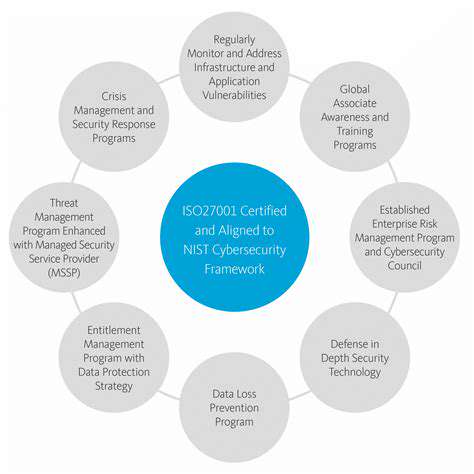
Integration with Home Automation and Beyond
The Central Hub of Smart Living
Modern lighting systems have evolved into the central nervous system of intelligent homes. Their integration with climate control, security networks, and voice assistants creates synchronized environments where multiple systems work in concert. Picture waking to lights that gradually brighten as your thermostat adjusts the temperature - these coordinated actions represent the future of automated living.
Conscious Energy Stewardship
Today's lighting solutions offer unprecedented control over energy consumption. Automated scheduling combines with ambient light detection to ensure optimal efficiency. The cumulative effect of these features - reduced waste, lower bills, and decreased environmental impact - makes smart lighting an investment that pays dividends on multiple levels.
Tailored Lighting Experiences
The personalization potential of smart lighting is remarkable. From circadian-aligned daily rhythms to mood-enhancing color therapies, these systems adapt to individual lifestyles. Whether creating a vibrant party atmosphere or a soothing evening retreat, the lighting becomes an extension of personal expression.
Enhanced Protection Through Illumination
Intelligent lighting provides next-generation security capabilities that go beyond simple deterrents. Integrated systems can trigger specific lighting responses to security events, while randomized patterns maintain the appearance of occupancy. This multi-layered approach creates a comprehensive security solution that's always active.
Future-Ready Technology
Investing in smart lighting means participating in an evolving technological ecosystem that continues to expand its capabilities. As IoT devices and artificial intelligence advance, lighting systems will gain even more sophisticated automation and personalization features, ensuring long-term relevance in the smart home revolution.
Read more about Smart Lighting Systems: Beyond Basic Illumination
Hot Recommendations
- AI in Property Marketing: Virtual Tours and VR
- Water Management Solutions for Sustainable Real Estate
- IoT Solutions for Smart Building Energy Management
- Sustainable Real Estate: Building a Greener Tomorrow
- Sustainable Real Estate: From Concept to Community
- AI Driven Due Diligence for Large Scale Developments
- Real Estate Sector and Global Climate Agreements
- Smart Buildings: The Key to Smarter Property Management
- Zero Waste Buildings: A Sustainable Real Estate Goal
- Understanding Climate Risk in Real Estate Financing
